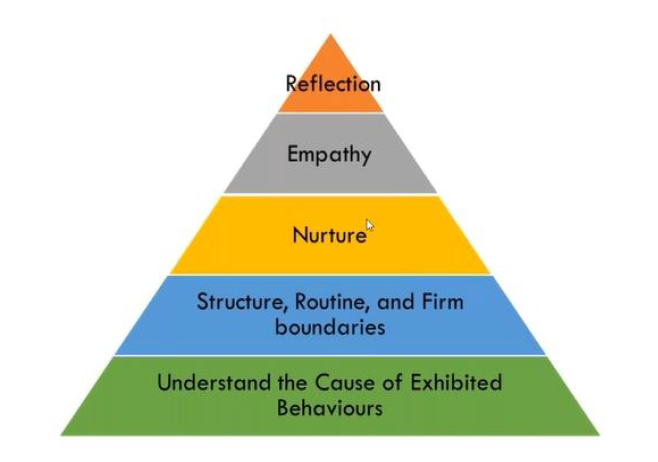Therapeutic Parenting
A printable version of this article is available for download at the bottom of this page.
What is Therapeutic Parenting?
Therapeutic parenting is a deep nurturing parenting style. It has a foundation of self awareness and a central core of mentalisation: the ability to reflect on your inner life and the inner life of others. Therapeutic parenting describes the type of high-nurture, intentional parenting that encourages feelings of safety and connectedness. This then allows traumatised children to start to heal.
This parenting style allows the child to self regulate and develop an understanding of their own behaviours and allow the child to form secure attachments.
Some common behaviours of children who have experienced trauma include:
Fear
Lack of cause and effect thinking
Impacted internal working model
Unable to reattune
Lack of empathy
Control and power issues
Recreating negative but familiar environments
Blocked trust
Fear of invisibility
Compulsion to break forming attachments.
These behaviours may take you off guard, but they are very common behaviours for children who have experienced trauma.
Examples of Punitive VS Therapeutic Parenting
The PARENTS Model of Therapeutic Parenting
The PARENTS model guides intervention during an incident. It is a list of 'what to do' during a challenging moment or behaviour.
Pause - Take time to regulate ourselves so we can reconnect our cortex to our lower brain. We can think in our cortex, and find calmer ways to respond.
Assess - What is actually happening? Is there immediate danger?
Reflect - What's going on with the child?
Empathise - Express empathy for the difficulty the child is experiencing.
Nurture - Offer touch, nurture, parental presence, a sip of water.
Think - What strategies might resolve this in the long term? What can I change to avoid this happening in the future?
Self-Care - What can I do to make myself feel better? You need to recover in order to re-attune with the child.
The Essential Foundations Of Therapeutic Parenting
This model can be portrayed as being a 'two - way' model, parents can use this as a guide to 'empathise' and 'reflect' with the children, but they can also use it to learn how to empathise and reflect on themselves.
There are 5 key foundations of therapeutic parenting:
Understanding the Cause of Exhibited Behaviour When parents can understand what has happened to the child, we can understand the cause for their behaviours.
Structure, Routine, and Firm boundaries This layer is about being very clear about what the (reasonable) expectations are, and understanding what these look like in the home environment.
Nurture Helping the child to receive nurture and learning what nurture feels like.
Empathy Compassion and acceptance of the child and their feelings.
Reflection Being able to reflect and understand what's happening.
P.A.C.E
P.A.C.E is a way of thinking, feeling, communicating and behaving that aims to make the child feel safe. Dan Hughes created this model to emphasise the four personal qualities (P.A.C.E) which allow adults to support children's development in their own self awareness. Over time the child will gain those tools to better regulate their own emotions.
Playful - Playful is about creating a light atmosphere when you communicate. Playful is about having fun and expressing joy. E.g. “that looks fun, can i join you?”
Acceptance - is about actively communicating with the child that you accept their feelings, thoughts, wishes, urges and motives that are underneath their outward behaviour. E.g. “you are loved no matter what”, “your feelings aren’t wrong or right, they just are”.
Curiosity - Curiosity, without judgement, is how we help children become aware of their inner life, and reflect upon the reasons for their behaviour. E.g. “i wonder…”, “tell me about that..”.
Empathy - Empathy lets the child feel the adults compassion for them. Being empathic means actively showing the child that their inner life is important to the adult. E.g. “I’ll help you with these big feelings”.
So how can you become a therapeutic parent?
Start by studying the basics of therapeutic parenting and by gathering 'tools' for your toolbox. However, all successful therapeutic parenting strategies follow these main points...
Focus on safety
Connected parenting - PACE model. Be Playful, Accepting, Curious, and Empathic. Trying to attune to your child as a connectedness strategy.
Intentional parenting - being purposeful about what you do and knowing why you are using a specific tool or strategy.
Keeping a long term perspective and practising self care - children often don't heal quickly so therapeutic parents have to be committed to this intense parenting style for a long time. It's important to take care of yourself so that you have the energy to take care of yours kids.




